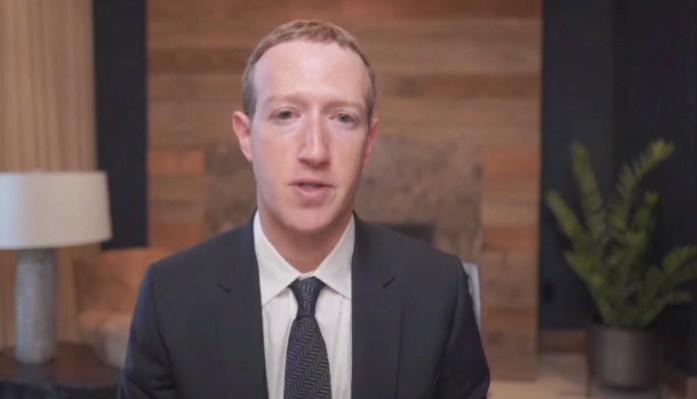Social Media CEOs Can’t Defend Their Business Model
Anyone who has been paying any attention at all knows that big social media platforms like Facebook, Twitter, and YouTube prioritize user engagement above just about anything else. So why won’t their CEOs admit it?
On Thursday, Mark Zuckerberg, Jack Dorsey, and Sundar Pichai testified before Congress for a hearing titled “Disinformation Nation: Social Media’s Role In Promoting Extremism And Misinformation.” By this point, it was far from their first rodeo. The three executives testified in the Senate in late October, and Dorsey and Zuckerberg were hauled back in after the election. Both hearings were loud, incoherent spectacles that included a lot of browbeating over specific tweets and not much substance. Thursday’s hearing, before the House Energy and Commerce committee, promised more of the same.
And it delivered—but only in part. If you tuned in looking for dumb questions, annoying partisan talking points, and exasperatingly squishy discussions of “misinformation” and Section 230 of the Communications Decency Act, you would not have been disappointed. However! The five-and-a-half-hour hearing also contained flashes of promise, when members of Congress did something they have very rarely done in these situations: drilling down on the business incentives that drive bad consequences, rather than just browbeating the companies for their content moderation decisions. Representative after representative took turns describing the relationship between monetizing user attention in order to serve personalized ads, on the one hand, and the proliferation of extreme and false material, on the other. Consider this statement of the case, from Robin Kelly, an Illinois Democrat:
“The business model for your platforms is quite simple: keep users engaged. The more time people spend on social media, the more data harvested and targeted ads sold. To build that engagement, social media platforms amplify content that gets attention. That can be cat videos or vacation pictures, but too often it means content that’s incendiary, contains conspiracy theories or violence. Algorithms on the platforms can actively funnel users from the mainstream to the fringe, subjecting users to more extreme content, all to maintain user engagement. This is a fundamental flaw in your business model that mere warning labels on posts, temporary suspensions of some accounts, and even content moderation cannot address. And your companies’ insatiable desire to maintain user engagement will continue to give such content a safe haven if doing so improves your bottom line.”
Focusing on the attention-driven business model seems to have been a coordinated strategy among the committee’s Democrats, but they were not alone. Bill Johnson, a Republican from Ohio, compared the addictiveness of social platforms to cigarettes. “You profit from hooking users on your platforms by capitalizing off their time,” he said, addressing Dorsey and Zuckerberg. “So yes or no: Do you agree that you make money off of creating an addiction to your platforms?”
Both executives said no. As they did over and over again, along with Pichai, when asked straightforwardly whether their platforms’ algorithms are optimized to show users material that will keep them engaged. Rather than defend their companies’ business model, they denied it.
Zuckerberg, in particular, suggested that maximizing the amount of time users spend on the platform is the furthest thing from his engineers’ minds. “It’s a common misconception that our teams even have goals of trying to increase the amount of time that people spend,” he said. The company’s true goal, he insisted, is to foster “meaningful social interactions.” Misinformation and inflammatory content actually thwarts that goal. If users are spending time on the platform, it simply proves that the experience is so meaningful to them. “Engagement,” he said, “is only a sign that if we deliver that value, then it will be natural that people use our services more.”


